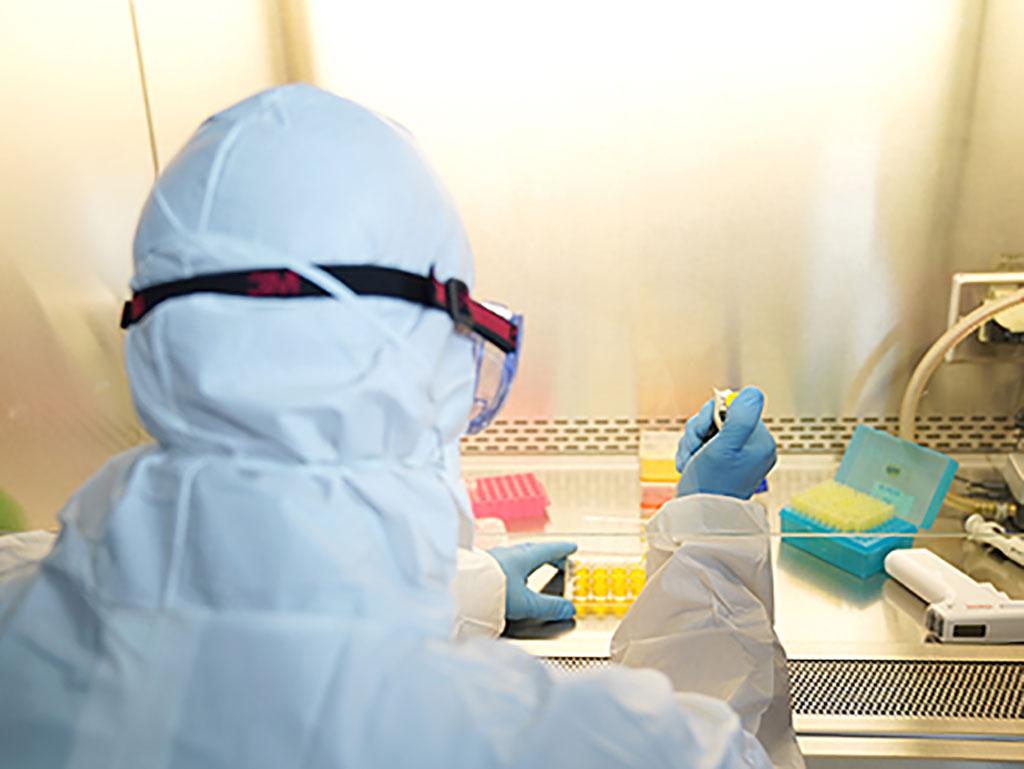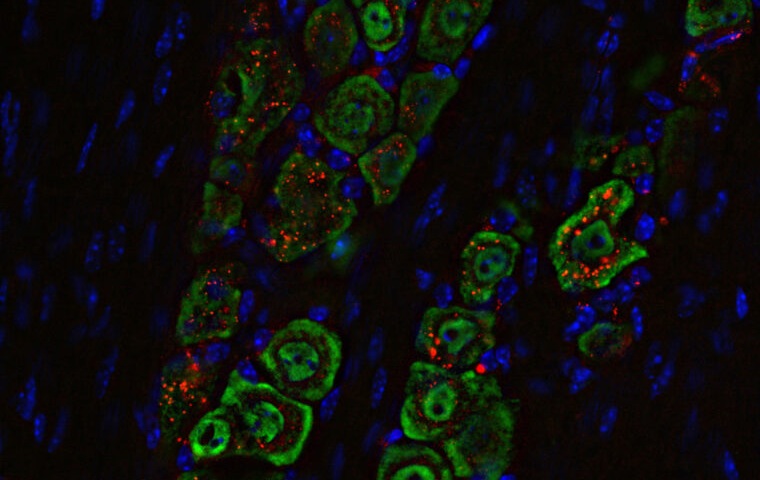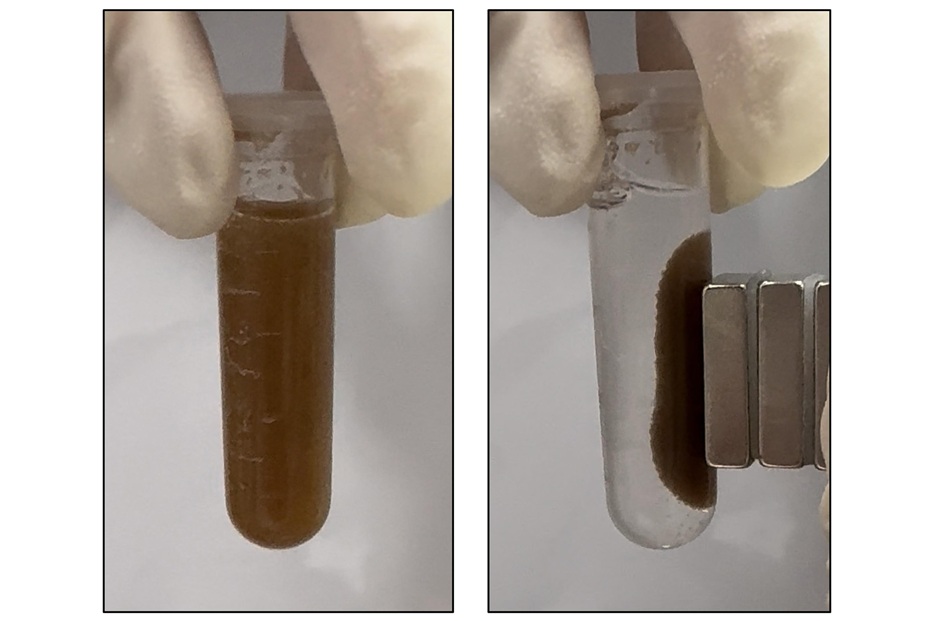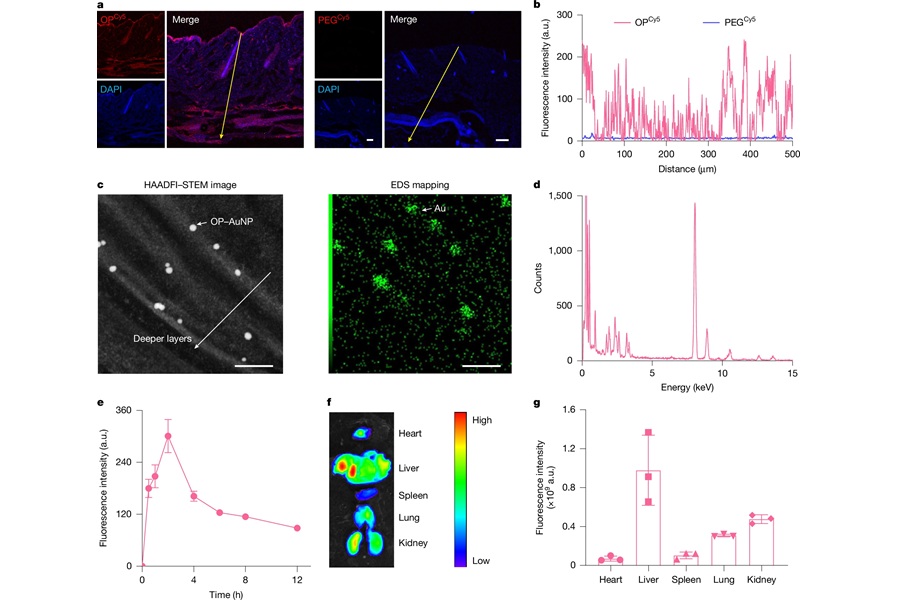Intranasal COVID-19 Vaccine Candidate Shows Potent Immune Responses in Extensive Preclinical Tests
|
By HospiMedica International staff writers Posted on 15 Oct 2020 |

Illustration
An intranasal COVID-19 vaccine candidate that underwent extensive preclinical testing has shown potent preclinical immune responses, including several that distinguish it from other COVID-19 vaccine approaches.
Altimmune, Inc. (Gaithersburg, MD, USA) is collaborating with the University of Alabama (Birmingham, AL, USA) for clinical trials to evaluate its intranasal dose COVID-19 vaccine candidate, AdCOVID. AdCOVID is based on Altimmune’s adenovirus-based intranasal vaccine platform, and the vaccine candidate expresses the receptor binding domain of the SARS-CoV-2 spike protein. This domain is essential for viral infection, and the majority of neutralizing antibodies found in people who recovered from COVID-19 bind to this receptor binding domain, highlighting it as a target to control infection.
Following partial preclinical results announced in July and August, the latest expanded results show strong activation of both arms of the adaptive immune system following a single intranasal dose of Altimmune’s AdCOVID, as tested at UAB in two strains of mice. The vaccine potently stimulated neutralizing antibodies in the blood plasma that can inactivate SARS-CoV-2 as well as the immune system’s T cells, priming them to attack virus-infected cells. More importantly, the vaccine elicited mucosal antibody and T cell responses in the respiratory tract, including the lung and the nose, creating a possible barrier to infection and transmission at the viral point of entry. The observed IgA response, together with the lung-associated resident memory T cell response, provides an additional level of immune response, as compared to intramuscular vaccination, that may provide enhanced protection against COVID-19 disease and transmission.
Altimmune expects AdCOVID will have an important advantage over some other vaccine candidates that require freezers or ultra-low freezers during distribution. AdCOVID’s expected stability at room temperature would allow distribution without refrigeration, followed by long-term storage in simple refrigerators at clinics or pharmacies. Also, an intranasal inoculation does not require syringes or needles. Additionally, current first-generation COVID-19 vaccines that are given by intramuscular injection, are unable to activate nasal mucosal immunity. Nasal mucosal immunity may be critical for mounting a comprehensive immune response, and it may also prevent further spread of the virus by blocking transmission.
“Intranasal vaccination represents an attractive strategy to prevent COVID-19 infection, as the nasal cavity comprises the first-line of defense against the SARS-CoV-2 virus prior to entry into the lungs,” said Scot Roberts, Ph.D., chief scientific officer for Altimmune. “By stimulating mucosal antibody and T cell immunity, along with potent systemic neutralizing antibody titers, both arms of the immune system can work in concert to prevent and control infection.”
Related Links:
Altimmune, Inc.
University of Alabama
Altimmune, Inc. (Gaithersburg, MD, USA) is collaborating with the University of Alabama (Birmingham, AL, USA) for clinical trials to evaluate its intranasal dose COVID-19 vaccine candidate, AdCOVID. AdCOVID is based on Altimmune’s adenovirus-based intranasal vaccine platform, and the vaccine candidate expresses the receptor binding domain of the SARS-CoV-2 spike protein. This domain is essential for viral infection, and the majority of neutralizing antibodies found in people who recovered from COVID-19 bind to this receptor binding domain, highlighting it as a target to control infection.
Following partial preclinical results announced in July and August, the latest expanded results show strong activation of both arms of the adaptive immune system following a single intranasal dose of Altimmune’s AdCOVID, as tested at UAB in two strains of mice. The vaccine potently stimulated neutralizing antibodies in the blood plasma that can inactivate SARS-CoV-2 as well as the immune system’s T cells, priming them to attack virus-infected cells. More importantly, the vaccine elicited mucosal antibody and T cell responses in the respiratory tract, including the lung and the nose, creating a possible barrier to infection and transmission at the viral point of entry. The observed IgA response, together with the lung-associated resident memory T cell response, provides an additional level of immune response, as compared to intramuscular vaccination, that may provide enhanced protection against COVID-19 disease and transmission.
Altimmune expects AdCOVID will have an important advantage over some other vaccine candidates that require freezers or ultra-low freezers during distribution. AdCOVID’s expected stability at room temperature would allow distribution without refrigeration, followed by long-term storage in simple refrigerators at clinics or pharmacies. Also, an intranasal inoculation does not require syringes or needles. Additionally, current first-generation COVID-19 vaccines that are given by intramuscular injection, are unable to activate nasal mucosal immunity. Nasal mucosal immunity may be critical for mounting a comprehensive immune response, and it may also prevent further spread of the virus by blocking transmission.
“Intranasal vaccination represents an attractive strategy to prevent COVID-19 infection, as the nasal cavity comprises the first-line of defense against the SARS-CoV-2 virus prior to entry into the lungs,” said Scot Roberts, Ph.D., chief scientific officer for Altimmune. “By stimulating mucosal antibody and T cell immunity, along with potent systemic neutralizing antibody titers, both arms of the immune system can work in concert to prevent and control infection.”
Related Links:
Altimmune, Inc.
University of Alabama
Latest COVID-19 News
- Low-Cost System Detects SARS-CoV-2 Virus in Hospital Air Using High-Tech Bubbles
- World's First Inhalable COVID-19 Vaccine Approved in China
- COVID-19 Vaccine Patch Fights SARS-CoV-2 Variants Better than Needles
- Blood Viscosity Testing Can Predict Risk of Death in Hospitalized COVID-19 Patients
- ‘Covid Computer’ Uses AI to Detect COVID-19 from Chest CT Scans
- MRI Lung-Imaging Technique Shows Cause of Long-COVID Symptoms
- Chest CT Scans of COVID-19 Patients Could Help Distinguish Between SARS-CoV-2 Variants
- Specialized MRI Detects Lung Abnormalities in Non-Hospitalized Long COVID Patients
- AI Algorithm Identifies Hospitalized Patients at Highest Risk of Dying From COVID-19
- Sweat Sensor Detects Key Biomarkers That Provide Early Warning of COVID-19 and Flu
- Study Assesses Impact of COVID-19 on Ventilation/Perfusion Scintigraphy
- CT Imaging Study Finds Vaccination Reduces Risk of COVID-19 Associated Pulmonary Embolism
- Third Day in Hospital a ‘Tipping Point’ in Severity of COVID-19 Pneumonia
- Longer Interval Between COVID-19 Vaccines Generates Up to Nine Times as Many Antibodies
- AI Model for Monitoring COVID-19 Predicts Mortality Within First 30 Days of Admission
- AI Predicts COVID Prognosis at Near-Expert Level Based Off CT Scans
Channels
Critical Care
view channel
Nasal Drops Fight Brain Tumors Noninvasively
Glioblastoma is one of the most aggressive and fatal brain cancers, progressing rapidly and leaving patients with very limited treatment options. A major challenge has been delivering effective therapies... Read more
AI Helps Optimize Therapy Selection and Dosing for Septic Shock
Septic shock is a life-threatening complication of sepsis and remains a leading cause of hospital deaths worldwide. Patients experience dangerously low blood pressure that can rapidly lead to organ failure,... Read more
Glowing Bacteria ‘Pills’ for Detecting Gut Diseases Could Eliminate Colonoscopies
Diagnosing gastrointestinal diseases such as colitis and colorectal cancer often relies on colonoscopy, an invasive procedure that many patients avoid despite ongoing symptoms like bleeding, cramping, and diarrhoea.... Read moreSurgical Techniques
view channelNovel Endoscopy Technique Provides Access to Deep Lung Tumors
Detecting lung cancer early can save lives, but diagnosing small tumors deep in the outer regions of the lungs remains a major clinical challenge. Although CT scans frequently identify tiny suspicious... Read more
New Study Findings Could Halve Number of Stent Procedures
When a coronary artery becomes acutely blocked during a heart attack, opening it immediately is essential to prevent irreversible damage. However, many patients also have other narrowed vessels that appear... Read morePatient Care
view channel
Revolutionary Automatic IV-Line Flushing Device to Enhance Infusion Care
More than 80% of in-hospital patients receive intravenous (IV) therapy. Every dose of IV medicine delivered in a small volume (<250 mL) infusion bag should be followed by subsequent flushing to ensure... Read more
VR Training Tool Combats Contamination of Portable Medical Equipment
Healthcare-associated infections (HAIs) impact one in every 31 patients, cause nearly 100,000 deaths each year, and cost USD 28.4 billion in direct medical expenses. Notably, up to 75% of these infections... Read more
Portable Biosensor Platform to Reduce Hospital-Acquired Infections
Approximately 4 million patients in the European Union acquire healthcare-associated infections (HAIs) or nosocomial infections each year, with around 37,000 deaths directly resulting from these infections,... Read moreFirst-Of-Its-Kind Portable Germicidal Light Technology Disinfects High-Touch Clinical Surfaces in Seconds
Reducing healthcare-acquired infections (HAIs) remains a pressing issue within global healthcare systems. In the United States alone, 1.7 million patients contract HAIs annually, leading to approximately... Read moreHealth IT
view channel
EMR-Based Tool Predicts Graft Failure After Kidney Transplant
Kidney transplantation offers patients with end-stage kidney disease longer survival and better quality of life than dialysis, yet graft failure remains a major challenge. Although a successful transplant... Read more
Printable Molecule-Selective Nanoparticles Enable Mass Production of Wearable Biosensors
The future of medicine is likely to focus on the personalization of healthcare—understanding exactly what an individual requires and delivering the appropriate combination of nutrients, metabolites, and... Read moreBusiness
view channel
Philips and Masimo Partner to Advance Patient Monitoring Measurement Technologies
Royal Philips (Amsterdam, Netherlands) and Masimo (Irvine, California, USA) have renewed their multi-year strategic collaboration, combining Philips’ expertise in patient monitoring with Masimo’s noninvasive... Read more
B. Braun Acquires Digital Microsurgery Company True Digital Surgery
The high-end microsurgery market in neurosurgery, spine, and ENT is undergoing a significant transformation. Traditional analog microscopes are giving way to digital exoscopes, which provide improved visualization,... Read more
CMEF 2025 to Promote Holistic and High-Quality Development of Medical and Health Industry
The 92nd China International Medical Equipment Fair (CMEF 2025) Autumn Exhibition is scheduled to be held from September 26 to 29 at the China Import and Export Fair Complex (Canton Fair Complex) in Guangzhou.... Read more

















